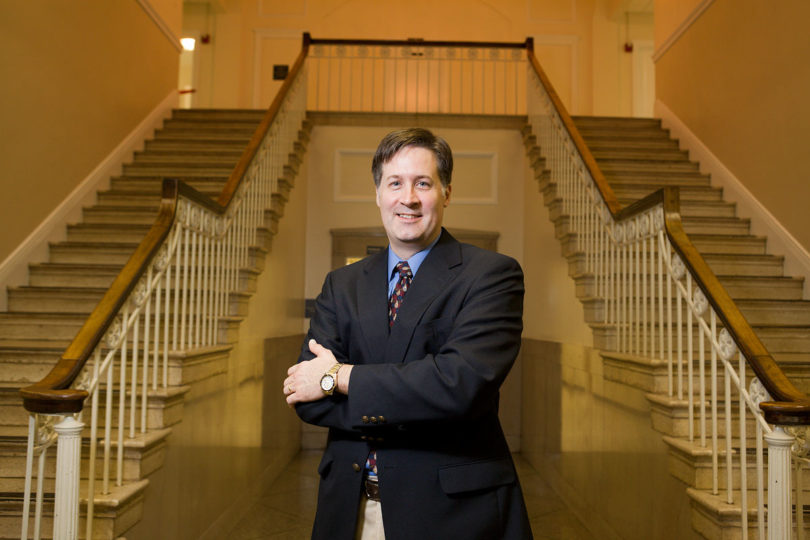“I thought I had a going problem, but my doctor told me I might have a growing problem. Ask your doctor if (fill in the blank) is right for you.”
If you own a television, it is nearly impossible to escape the $5 billion a year spent on direct-to-consumer advertising by pharmaceutical companies.
As one of the nation’s leading health policy economists, David Bradford has directed 19 funded research projects with organizations like the National Institutes of Health and the Agency for Healthcare Research and Quality. While much of his research involves evaluating the impact of direct-to-consumer advertising for prescription drugs, he also is involved in research that assesses individuals’ time preferences and their effects on the demand for preventative medical care.
Sure, he can tell you what Abraham Lincoln, butterflies, beavers and moths have in common (Answer: they are all featured in pharmaceutical commercials for sleep medications). But Bradford also can explain the medical, social and economic outcomes of such advertising, and the complex theories behind the findings-and does it all with the same enthusiasm he has when he talks about growing up in the hamlet of Deasonville, Miss.
“Deasonville’s population was nine before I left for college and eight after I left,” he said.
The oldest of three kids, Bradford spent time as a young boy working for his father’s businesses, both as a woodworker and a cotton scout.
“It’s fair to say that my route to economics was a rather circuitous one,” he said. “I don’t know many economists who would say it was beekeeping that put them on the path to economics.”
When Bradford was 15, his parents urged him to enter a national essay contest about beekeeping. He won and spent the summer in Germany studying beekeeping on an island in the Baltic Sea.
“That experience opened my eyes to international trade and business,” Bradford said.
At Mississippi State University, Bradford pursued a foreign language degree both because of his interest in working internationally, and its minimal requirement for math, a subject in which he had no interest. While at Mississippi State, he managed to pick up three minors. One of those minors-economics-captivated him.
“With no real enticing job options following graduation from Mississippi State, I turned to graduate school after college,” he said. “And somehow, I managed to convince LSU to accept me into its master’s program in economics despite not meeting the math requirements.”
During his graduate program in economics, Bradford focused on industrial organization and econometrics, and a professor got him interested in the healthcare industry.
“As often happens, a professor handed me an article and said ‘these guys got this wrong, and you can get a paper out of it if you get their data and do it the right way.’ ”
He did, and the paper evolved into his dissertation. Since that time, he has authored more than 40 peer-reviewed journal articles and book chapters on health economics and serves as the co-editor of the journal Health Economics Letters.
He is a permanent member of the Health Services Organization and Delivery study section of the National Institutes of Health. Currently, Bradford is the principal investigator on a large research project being funded by the Agency for Healthcare Research and Quality to examine FDA black-box warnings in post-marketing drug safety.







